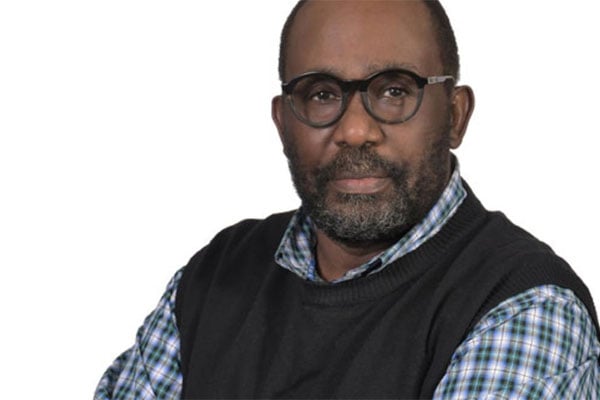Magufuli’s death, and a close call for Uganda’s oil pipeline

Mr Charles Onyango-Obbo
What you need to know:
- The 1,445-kilometre-long pipeline from the oil wells in western Uganda to Tanzania’s seaport of Tanga will be the longest electrically heated pipeline in the world. Heated because Uganda’s oil is waxy.
Last week, Uganda postponed the signing of the East African Crude Oil Pipeline (EACOP) deal to April, following the death of Tanzanian president John Pombe Magufuli. Before his death, Magufuli had been scheduled to travel to Kampala on a rare trip outside Tanzania, for a three-way signing of the pipeline deal between the governments of Uganda and Tanzania, and the lead investor Total on March 22.
The 1,445-kilometre-long pipeline from the oil wells in western Uganda to Tanzania’s seaport of Tanga will be the longest electrically heated pipeline in the world. Heated because Uganda’s oil is waxy.
Magufuli’s death, though unlikely to affect the pipeline in the long-term, is still a warning whose lessons need to be heeded. Magufuli’s scrappy “African wealth for Africans” line made him a useful ally in the pipeline, and his “bulldozer” give-them-hell and damn-the-environmentalists approach, helped to clear the way for the project rather quickly. If the pipeline had taken the Kenyan route, with the country’s relatively wider democratic space, activist civil society, feisty environmentalists, and litigious tradition, it would probably now be buried under 100 lawsuits.
Although, some analysts argue, the pipeline made more economic sense passing through Kenya, Uganda eventually cited proximity to al-Shabaab, among the key considerations for the Tanzania choice. Privately, insiders in Uganda say “democratically-dressed threats” in Kenya were an important disincentive, and that President Yoweri Museveni’s government, executing the pipeline in the dying years and most contentious period of his rule, also chose the Tanzanian route because it passed through more politically friendly territory. The outcome of the January election might well suggest that from a purely selfish and cynical point of view, it is was a foresighted calculation.
However, Magufuli’s death could also have collapsed the project. His former vice-president and successor President Samia Suluhu Hassan, is not a bulldozer, and is seen as more pragmatic, and broadly more enlightened on East African integration than the erratic Magufuli was. The next few weeks will reveal if that analysis is accurate, but the lesson needs to be heeded.
The first is that as a landlocked country, Uganda needs to avoid locking itself in a dogmatic and narrow-minded relationship with its neighbours, especially Tanzania and Kenya, which are the country’s main sea routes. Since Idi Amin, most governments in Kampala have tried to do that, with varying levels of success. The Museveni government made a misstep immediately upon taking power, scrapping the April 11 Liberation Day celebration marking the day when a combined force of the Tanzanian Defence Forces and Ugandan exiles ousted Amin. In the NRM’s petty vindictiveness, it saw Liberation Day as a homage to Tanzania, and it was miffed at its support for former president Milton Obote.
The Tanzanians didn’t take it kindly, but coming immediately after Julius Nyerere stepped down in 1985, and the ascension to power of the mild-mannered president Hassan Mwinyi, and former Makererean and pro-Ugandan Ben Mkapa after him, it didn’t blow up. Now, if President Suluhu turns out to be more institutionalist than Magufuli was, it could place a small wrinkle on the pipeline. Then, think for a minute, what would have happened if Opposition leader Tundu Lissu who, along with his comrades, was tormented by Magufuli, and has been scorned by Ugandan officialdom, had somehow come in government in a post-Magufuli flux. Museveni’s Uganda would find itself in a pickle.
This partisanship has been most evident in Kenya, where Uganda’s dalliance with the governments of the day went horribly wrong in the post-election violence of early 2008 and became a nightmare, with our trucks being burnt and drivers attacked. Unlike Tanzania, Kenya’s politics is more unpredictable and changeable, and as happened in the case of Opposition leader Raila Odinga, you turn your nose up to him today, tomorrow you will find yourself dealing with him across the table as the power broker.
Uganda needs to have a more activist two or three-track policy towards Tanzania and Kenya; being married to the governments in Nairobi and Dodomo/Dar es Salaam by day, and having a fling with the Opposition in the night – just in case. But perhaps more crucially, Magufuli’s departure should force a strategic re-evaluation of the pipeline. In the early stages, the view was that Uganda would not make the “historical mistake” of just exporting crude oil, and would refine it. There were many odds against the idea, but a new scenarios planning is necessary.
Maybe the investment could be funnelled into a refinery model that works, modernising the railway system, and extending it to the Rwanda, DR Congo, and South Sudan borders to distribute refined product. Hoping a mad man or woman who is anti-Uganda will never come to power in Tanzania, is too thin a thread to hang a country’s economy on.





